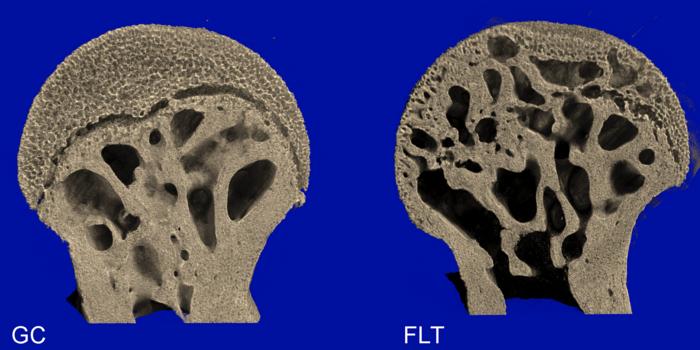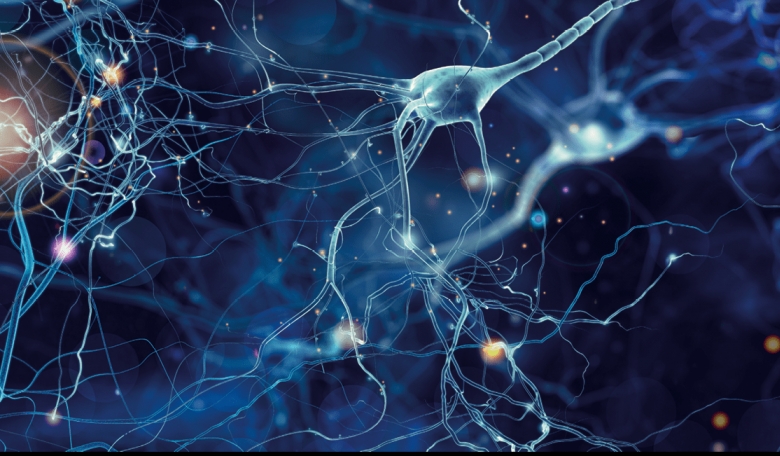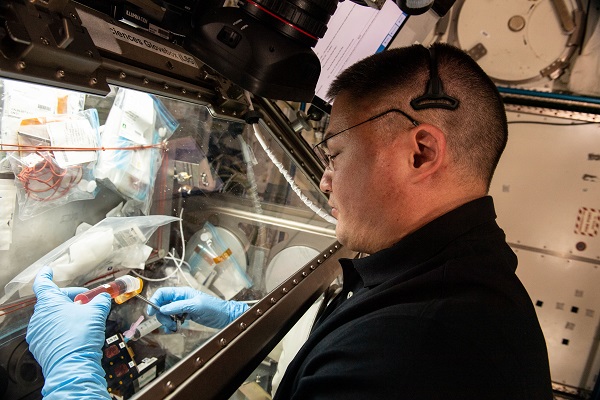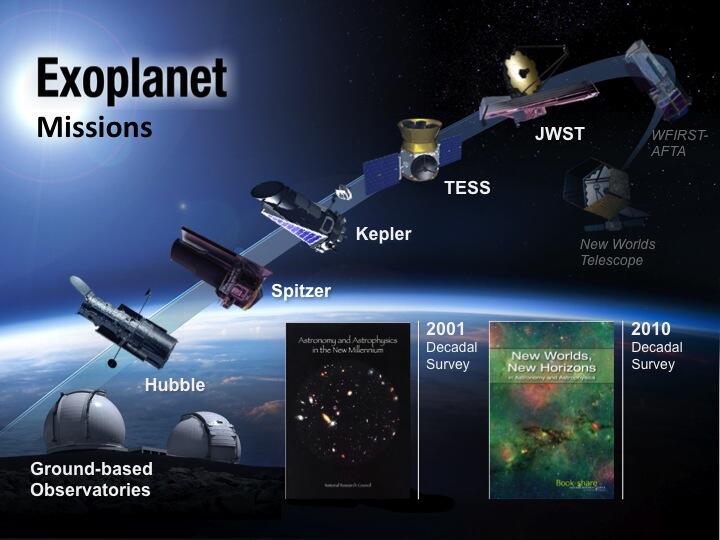As humans continue to explore and push the boundaries of space travel, it has become increasingly important to study the effects of microgravity on the human body. One of the key areas of concern is the impact of space travel on the skeletal and nervous systems. Bone loss and brain adaptation are two critical aspects that require thorough investigation to ensure the health and safety of astronauts during space missions.
The microgravity environment of space can cause significant changes to the human body, particularly in terms of bone density and brain function. Prolonged exposure to microgravity can lead to a loss of bone mass, which can increase the risk of osteoporosis and fractures. This is a major concern for astronauts, as it can affect their ability to perform their duties and compromise their overall health.
Some of the key factors that contribute to bone loss and brain adaptation in space include:
- Microgravity, which can cause a loss of bone density and muscle mass
- Radiation exposure, which can damage the brain and nervous system
- Isolation and confinement, which can affect mental health and cognitive function
- Lack of sleep and disrupted circadian rhythms, which can impact brain function and overall health
Understanding the effects of space travel on the human body is crucial for the development of effective countermeasures and treatments. By studying bone loss and brain adaptation in astronauts, researchers can gain valuable insights into the underlying mechanisms of these changes and develop strategies to mitigate their effects. This knowledge can also be applied to other areas of healthcare, such as the treatment of osteoporosis and neurodegenerative diseases.
The study of bone loss and brain adaptation in astronauts is a complex and multidisciplinary field, requiring the collaboration of experts from a range of disciplines, including medicine, biology, physics, and engineering. By working together, researchers can develop a comprehensive understanding of the effects of space travel on the human body and develop effective solutions to ensure the health and safety of astronauts on future space missions.

Introduction to Bone Loss in Space
When humans are in space, their bodies undergo various changes due to the microgravity environment. One of the significant effects of microgravity is on the human skeletal system. In space, the body does not have to work as hard to maintain its posture and support its weight, which can lead to a range of problems.
The skeletal system is affected by microgravity because it is no longer subjected to the usual stresses and loads that it experiences on Earth. This can cause the bones to lose density and strength over time. The effects of microgravity on the skeletal system can be seen in the way that the bones remodel themselves. On Earth, the bones are constantly being remodeled through a process of resorption and formation, which helps to maintain their strength and density.
Bone loss occurs in astronauts during prolonged spaceflight due to a range of factors. Some of the key factors that contribute to bone loss in space include:
- Reduced mechanical loading: In microgravity, the bones are not subjected to the same level of mechanical loading as they are on Earth, which can lead to a decrease in bone density.
- Inflammation: Spaceflight can cause inflammation in the body, which can lead to an increase in the activity of osteoclasts, the cells that break down bone tissue.
- Hormonal changes: Spaceflight can also cause changes in hormone levels, including a decrease in the level of parathyroid hormone, which helps to regulate calcium levels in the blood and bone.
The loss of bone density and strength can have serious consequences for astronauts, particularly on long-duration missions. It can increase the risk of fractures and osteoporosis, and can also affect the body's ability to recover from the stresses of spaceflight. Understanding the effects of microgravity on the skeletal system is essential for developing strategies to prevent and treat bone loss in astronauts.
Researchers are working to develop a range of countermeasures to prevent bone loss in space, including exercise programs and pharmaceutical interventions. These countermeasures are designed to reduce the negative effects of microgravity on the skeletal system and to maintain the health and well-being of astronauts on long-duration missions. By understanding the effects of microgravity on the skeletal system, we can take steps to protect the health of astronauts and to ensure that they are able to perform their duties safely and effectively in space.

Brain Adaptation and Space Travel
When humans travel to space, their brains undergo significant changes to adapt to the microgravity environment. This adaptation process is crucial for astronauts to function effectively in space, but it also has some effects on cognitive function. In microgravity, the brain's vestibular system, which is responsible for balance and spatial orientation, is disrupted. As a result, the brain must rewire itself to compensate for the lack of gravity, leading to changes in the way it processes information.
The effects of microgravity on cognitive function are multifaceted. On one hand, the brain's adaptability allows astronauts to perform tasks in space with ease, despite the initial disorientation. On the other hand, research has shown that microgravity can impair certain cognitive functions, such as spatial awareness, attention, and memory. These changes can be attributed to the brain's attempts to adapt to the new environment, which can lead to a temporary decline in performance.
Some of the key effects of brain adaptation to microgravity on cognitive function include:
- Changes in spatial awareness and orientation, which can affect an astronaut's ability to navigate in space
- Impairments in attention and focus, which can impact an astronaut's ability to perform complex tasks
- Decreased memory performance, which can affect an astronaut's ability to recall critical information
- Alterations in sleep patterns, which can impact an astronaut's overall health and well-being
The potential risks of brain adaptation to astronaut health are a major concern for space agencies and researchers. Prolonged exposure to microgravity can lead to long-term changes in the brain, which can have significant implications for an astronaut's health and well-being. Some of the potential risks include:
- Vision impairment, which can be caused by the changes in the way the brain processes visual information in microgravity
- Increased risk of space-related illnesses, such as space adaptation syndrome, which can cause a range of symptoms including nausea, headaches, and fatigue
- Decreased immune function, which can make astronauts more susceptible to illnesses and infections
- Long-term effects on cognitive function, which can impact an astronaut's ability to perform tasks and make decisions after returning to Earth
To mitigate these risks, researchers are working to develop a better understanding of how the brain adapts to microgravity and how to counteract the negative effects. This includes developing new training programs and technologies to help astronauts prepare for and adapt to the microgravity environment. By understanding the effects of brain adaptation on cognitive function and astronaut health, researchers can work to develop more effective strategies for supporting astronauts on long-duration space missions.

ISS Crew's Role in Studying Bone Loss and Brain Adaptation
The International Space Station (ISS) crew plays a vital role in conducting experiments to study bone loss and brain adaptation in microgravity environments. These studies are crucial in understanding the effects of long-term space travel on the human body. The crew's participation in these experiments helps scientists to gather valuable data, which can be used to develop effective countermeasures for future deep space missions.
The ISS crew conducts experiments using a variety of methods and equipment. For data collection, the crew uses specialized equipment such as
- DXA scanners to measure bone density
- Functional MRI machines to study brain function and adaptation
- Electromyography (EMG) equipment to measure muscle activity
These tools enable the crew to collect accurate and reliable data, which is then transmitted to scientists on Earth for analysis.
In addition to using specialized equipment, the ISS crew also participates in physical exercises and activities designed to stimulate bone growth and brain function. These activities include
- Resistance band exercises to maintain muscle mass
- Aerobic exercises to improve cardiovascular health
- Cognitive training programs to enhance brain function and adaptation
By studying the effects of these activities on the human body, scientists can develop effective exercise programs for future space missions.
The data collected by the ISS crew is analyzed by scientists using advanced software and computational models. This analysis helps to identify patterns and trends in bone loss and brain adaptation, which can be used to develop predictive models of these effects. By understanding how the human body adapts to microgravity environments, scientists can develop effective countermeasures to mitigate the negative effects of long-term space travel.
The ISS crew's role in studying bone loss and brain adaptation is essential for the success of future deep space missions. By participating in experiments and collecting data, the crew helps scientists to better understand the effects of microgravity on the human body. This knowledge can be used to develop effective countermeasures, such as exercise programs and protective equipment, to ensure the health and safety of astronauts on future missions.

Safeguarding Astronaut Health for Future Missions
As space agencies and private companies plan for future deep space missions, safeguarding astronaut health has become a top priority. One of the key areas of concern is the impact of microgravity on the human body, particularly bone loss and brain adaptation. Prolonged exposure to microgravity can cause a range of health problems, including muscle and bone loss, vision impairment, and cognitive decline.
The International Space Station (ISS) has provided a unique laboratory for scientists to study the effects of microgravity on the human body. The ISS crew has conducted extensive research on the physical and mental changes that occur during long-duration spaceflight. Their findings have significant implications for the development of countermeasures and safeguards to protect astronaut health on future deep space missions.
The research conducted on the ISS has focused on several key areas, including:
- Bone loss and osteoporosis: Microgravity can cause a loss of bone density, particularly in the weight-bearing bones of the hips and spine.
- Brain adaptation: Microgravity can affect the brain's ability to adapt to new environments, which can impact cognitive function and decision-making.
- Vision impairment: Prolonged exposure to microgravity can cause changes in the shape of the eye and affect vision.
- Muscle loss and atrophy: Microgravity can cause a loss of muscle mass and strength, particularly in the lower body.
The findings of the ISS crew's research can be used to develop countermeasures and safeguards for astronaut health. For example, scientists can use the data to develop exercise programs and equipment that can help mitigate the effects of microgravity on the body. Additionally, the research can inform the development of new technologies and strategies for protecting astronaut health, such as advanced life support systems and radiation shielding.
The development of countermeasures and safeguards will be critical for future deep space missions, where astronauts will be exposed to microgravity for extended periods. By studying the effects of microgravity on the human body and developing effective countermeasures, scientists can help ensure that astronauts are able to perform their duties safely and effectively, even in the most challenging environments. This will be essential for the success of future missions to the Moon, Mars, and beyond.

Frequently Asked Questions (FAQ)
Why is it important to study bone loss in astronauts?
Studying bone loss in astronauts is a crucial aspect of space research. When astronauts spend extended periods in space, their bodies undergo significant changes due to the microgravity environment. One of the primary concerns is the loss of bone density, which can have severe implications for their overall health and ability to perform their duties.
Prolonged exposure to microgravity causes the body to undergo various physiological changes. Bone loss is a significant concern, as it can increase the risk of fractures and osteoporosis. This is particularly worrying for astronauts, as they may be required to perform physically demanding tasks during spacewalks or emergency situations.
The importance of studying bone loss in astronauts can be seen in the following ways:
- Understanding the effects of microgravity on the human body, particularly on bone health
- Developing effective countermeasures to prevent or mitigate bone loss
- Ensuring the long-term health and safety of astronauts on prolonged space missions
By investigating bone loss in astronauts, researchers can identify potential risk factors and develop strategies to minimize its effects. This knowledge can be used to create targeted exercise programs, nutritional interventions, and other countermeasures to support bone health.
Studying bone loss in astronauts also has implications for healthcare on Earth. The research conducted in this area can provide valuable insights into the prevention and treatment of osteoporosis and other bone-related disorders. By exploring the effects of microgravity on bone health, scientists can gain a deeper understanding of the underlying mechanisms and develop new treatments for patients suffering from these conditions.
Ultimately, the study of bone loss in astronauts is essential for the success of long-duration space missions. By prioritizing the health and safety of astronauts, researchers can help ensure that space exploration is conducted safely and efficiently, paving the way for future missions to the Moon, Mars, and beyond.
How does microgravity affect the brain?
Microgravity has a profound impact on the human body, and one of the most critical areas of concern is its effect on the brain. When astronauts are in space, their brains are exposed to a unique environment that can cause changes in brain function and structure. This is a crucial area of study, as it can potentially affect cognitive performance, balance, and coordination.
The effects of microgravity on the brain are multifaceted. Research has shown that prolonged exposure to microgravity can lead to changes in the brain's gray and white matter, which can impact cognitive function. Additionally, the lack of gravity can cause fluids to shift towards the upper body, leading to increased pressure on the brain and eyes. This can result in vision impairment and other neurological symptoms.
Some of the key effects of microgravity on the brain include:
- Changes in cognitive function, such as attention and memory
- Impaired balance and coordination, which can increase the risk of accidents
- Vision impairment, including blurred vision and double vision
- Increased risk of neurological symptoms, such as headaches and fatigue
Understanding the effects of microgravity on the brain is essential for the safety of astronauts during space missions. By studying the impact of microgravity on brain function and structure, scientists can develop strategies to mitigate its effects and ensure that astronauts can perform their duties safely and effectively. This knowledge can also be applied to other areas, such as the development of countermeasures to prevent or reduce the effects of microgravity on the brain.
Further research is needed to fully understand the effects of microgravity on the brain and to develop effective countermeasures. This includes studying the effects of microgravity on the brain over longer periods, as well as developing new technologies and strategies to mitigate its effects. By continuing to study the effects of microgravity on the brain, scientists can help ensure the safety and success of future space missions.
What are the potential risks of brain adaptation to astronaut health?
Space travel has been a remarkable achievement in human history, but it also poses significant challenges to the health and well-being of astronauts. One of the critical areas of concern is the potential risks of brain adaptation to astronaut health. Prolonged exposure to microgravity and space radiation can have profound effects on the brain, leading to impaired cognitive function. This can manifest as difficulties with attention, memory, and decision-making, which can be critical in high-stress environments like space missions.
The brain's ability to adapt to new environments is a remarkable feature, but it can also lead to unintended consequences. In space, the brain must adjust to a lack of gravity, which can cause fluids to shift towards the upper body, including the brain. This can lead to changes in cognitive function, as well as increased pressure on the brain and eyes. Furthermore, the isolation and confinement of space travel can exacerbate these effects, leading to increased stress and anxiety.
Some of the potential risks of brain adaptation to astronaut health include:
- Impaired cognitive function, which can affect an astronaut's ability to perform critical tasks
- Increased risk of neurological disorders, such as Parkinson's disease and multiple sclerosis
- Potential long-term effects on brain health after returning to Earth, including increased risk of dementia and other neurodegenerative diseases
These risks are still being studied and researched, but they highlight the need for careful monitoring and mitigation strategies to protect the health and well-being of astronauts on long-duration space missions.
The effects of brain adaptation on astronaut health can be far-reaching and long-lasting. Even after returning to Earth, astronauts may experience lingering effects of their time in space, including impaired cognitive function and increased risk of neurological disorders. This underscores the importance of ongoing research and monitoring to understand the full extent of these risks and to develop effective countermeasures to mitigate them. By prioritizing the health and well-being of astronauts, we can ensure the success of future space missions and protect the brave men and women who venture into space.





